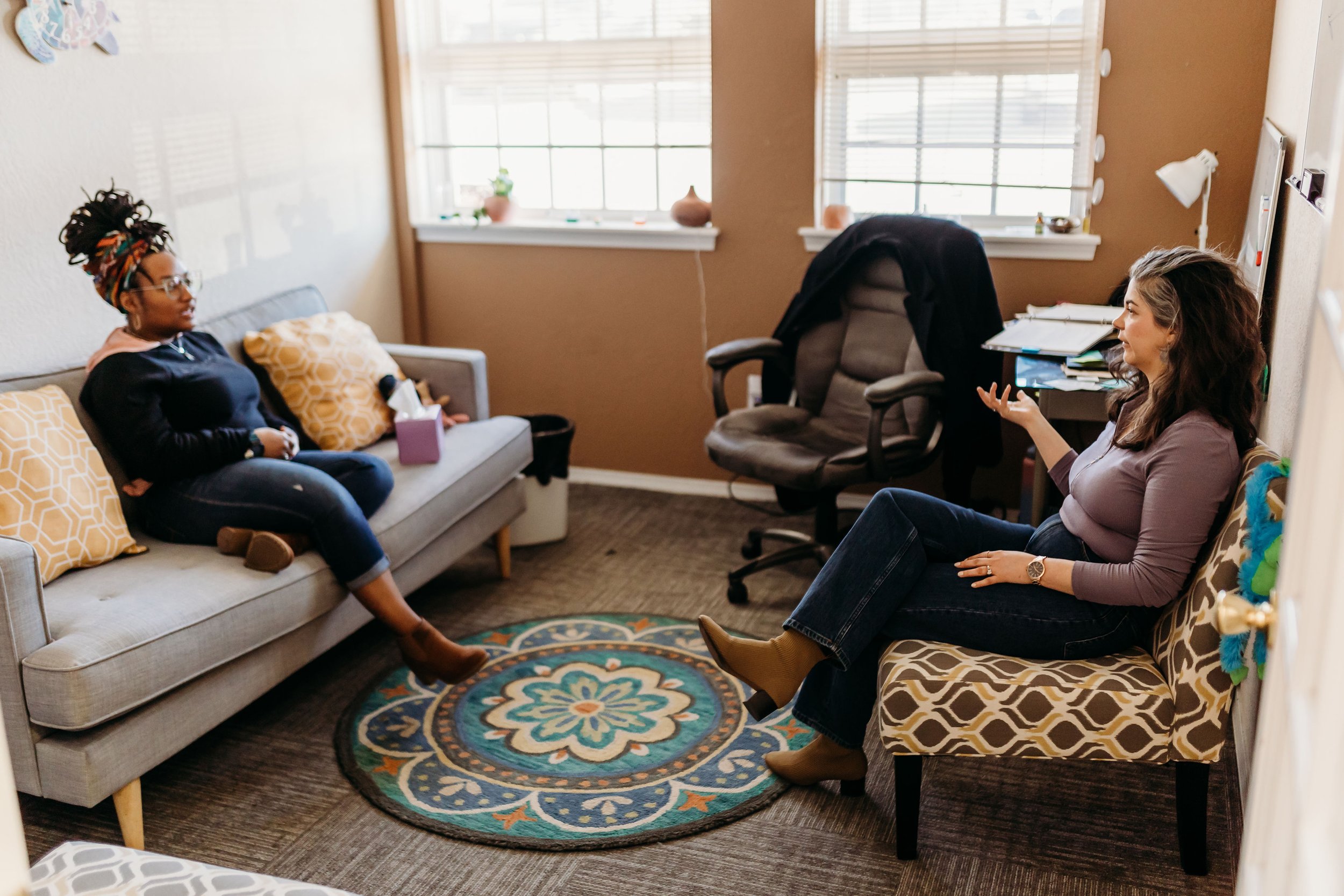
Adult Dialectical Behavior Therapy Program
Comprehensive DBT
Treatment for Adults
Our Adult program is a fully adherent program, which means that we follow the treatment as it was designed by Marsha Linehan, the creator and author of Dialectical Behavior Therapy. Originally developed in the late 1990s, the treatment has grown in its scope and widened its efficacy for multiple populations beyond only those struggling with chronic suicidality and Borderline Personality Disorder. It has proven effective for those struggling with high emotional intensities, difficulty with emotional and behavioral self-regulation, and harmful and damaging behaviors such as self-harm, addictions, and interpersonal conflicts. DBT is organized around the dance between behavioral change and acceptance. It seeks to work collaboratively with clients to identify the unique elements that comprise a life worth living for the individual.
What is DBT Treatment?
Comprehensive DBT includes 4 key components.
3 for the client and 1 for the clinician.
Clients receive:
A minimum of 1 individual session per week (and higher frequency when clinically indicated.)
One group skills session per week that is 2 hours long
Coaching availability 7 days a week.
Clinician:
4. All clinical staff must participate on a DBT clinical consultation team. Consultation provides “team treatment” and holds all clinicians accountable for remaining therapeutically consistent, improving skill levels, and addressing any issues arising in treatment.
1. Individual DBT Sessions
All clients work with a therapist 1:1 a minimum of once per week for 50 minutes and in some instances, 2 weekly sessions may be recommended if necessary. Client and therapist agree to the goals and commitment of DBT during their first few sessions and work on achieving those goals through structured sessions that rely on the use of DBT-specific tools for behavioral change.
2. Skills Group Sessions
All clients will participate in a skills group that is organized as a psychoeducational group with homework and behavioral practice of learned skills. These groups are not like standard process therapy groups and focus on increasing the generalized use of skills.
3. Behavioral Coaching
All clients can reach out to their Therapist outside of session hours 7 days a week for support in the use of skills and to interrupt behaviors when they are emerging in real time.
Specialized DBT
Programs for Adults
Co-Occurring Mental health and Substance Abuse treatment.
DBT has proven effective for a myriad of behavioral and mental health challenges and has proven highly effective in treating co-occurring mental health and substance abuse/misuse. This treatment includes SUD (substance use disorder) specific individual treatment and skills and addresses issues specific to living with co-occurring challenges.
All clients receive the same components as standard DBT, including individual SUD-specific 50-minute sessions, group skills sessions, and coaching with a SUDS-trained DBT therapist.
Primary treatment goals for Co-occurring clients include:
Increasing commitment and desire to cease use/misuse and identify other methods for managing challenges
Resourcing the client’s immediate environment to support decreased use and recovery.
Urge identification and skills to reduce urges and minimize the potential for relapse.
Increase skills resourcing to manage overwhelming emotional reactivity that leads to use/misuse.
Building a substance-free life worth living.
Art Therapy
Creative processes can be a mindful and supportive way to enter a mindfulness practice, so key to the foundational work of DBT. In a small group setting, clients can uncover their own creative process with guidance and in the supportive company of others.
Creating images can also provide important insights to clients about their feelings and beliefs.
Groups can be accessed online and are conducted by a DBT-trained Art Therapist.



